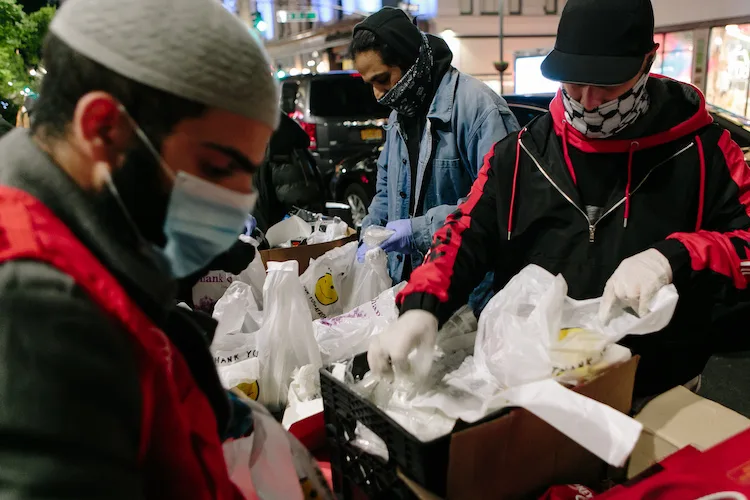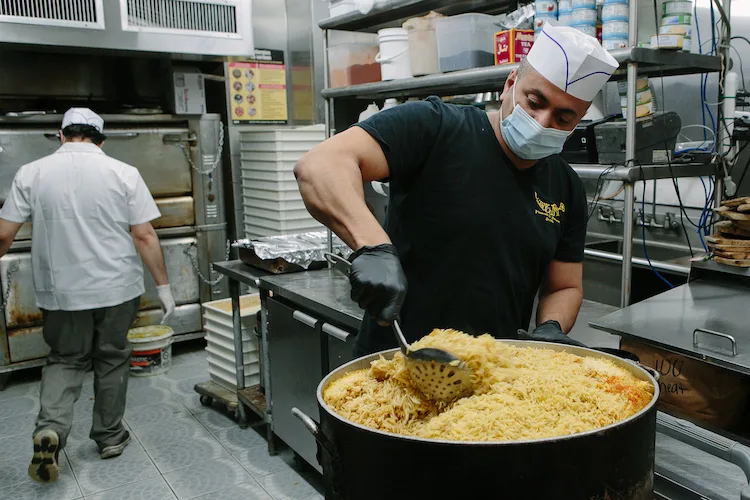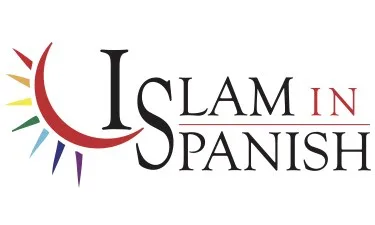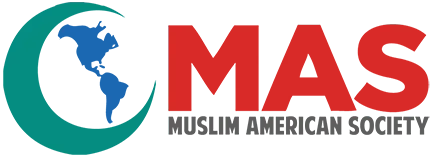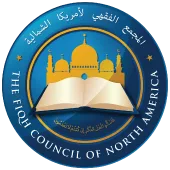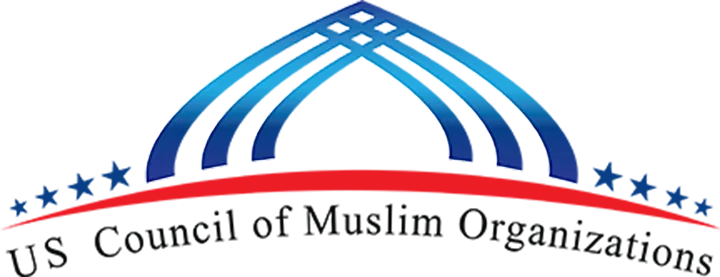To better understand how American Muslims responded to needs in their communities, take an expanded look on what support looked like in each of these categories, along with quotes from those who submitted their stories.
Medical Support
ISPU data show 15% of medical doctors in the state of Michigan and 10% in New York are Muslim, meaning huge numbers of Muslim healthcare workers were on the frontlines of two of the hardest hit states in the nation. “I worked in three hospitals, four dialysis centers, and two clinics serving COVID-19 and non-COVID-19 patients,” stated one of the physicians who submitted a survey.
This category includes healthcare workers and public health officials continuing to serve in their existing positions. In the midst of a global pandemic and with the high number of medical professionals in the American Muslim community, providing continuing medical support was high priority as reported by American Muslims who reported contributions in ISPU’s survey.
Food and Basic Needs Support
Data from ISPU’s American Muslim Poll shows one third of American Muslims had a household income at or below the poverty line before COVID-19 reached the United States. As a faith group heavily impacted by poverty, Muslims faced financial struggles like the rest of the nation as COVID brought a new reality. With many forced to stay at home and many more to lose their job or to be laid off, American Muslims who responded to ISPU’s survey focused a lot of their contributions on food security to meet the basic needs of their communities.
Support reported in our survey ranged from donation of groceries, cooked meals, and household supplies to offers of hardship grants. ISPU’s survey found food security and basic needs support in almost every state across the country. In many cases, mosques, Islamic centers, and non-profits set up regularly scheduled food and groceries distributions events in local communities. This category was by far the most frequently reported type of response by American Muslims across the country.
Education
As COVID-19 forced many schools to pivot to remote learning or hybrid models, teachers, administrators, and community organizations became creative in trying to provide remote education for students, adults, and community members.
As with other religious communities, typically for American Muslims Islamic schools and camps are more operational during the summer. With many states under restrictions, parents and institutions had to adapt. In California and Florida and other states, weekend Islamic schools turned to virtual meetings and schooling on Sundays, while groups like Islamic Networks Group (ING) created multiple webinar series to provide resources via Facebook Live. Survey respondents show many rushed to provide school supplies, including to those in need.
ISPU data shows many American Muslims work as educators, with many if not all forced to adjust to carrying out their work virtually due to COVID-19. Muslim K–12 teachers in New York City total 9,497, educating close to 250,000 students each year. American Muslims also work as both professors and administrators across New York City’s diverse public and private universities and colleges. In Michigan, the number of Muslim educators in Michigan grew 127 percent from 2013 to 2018 to more than 1,100 teachers, teaching an estimated 29,889 of the state’s students.
Spiritual Support
Spiritual nourishment can be the last thing on people’s minds in crisis moments, but during a time of uncertainty, illness, and death, spiritual support is crucial. Faith leaders, counselors, chaplains, and others involved in decision-making at houses of worship, hospitals, and universities provided both community leadership and individual support and continued to do so even as houses of worship were forced to close their doors to combat the spread of COVID-19.
Our survey shows a huge range of responses from those providing spiritual care, including chaplains providing spiritual care for patients who were sick and dying, imams consoling families and visiting neighbors, and others advocating for and participating in online gatherings like Quranic reflections to help fill the gap left by houses of worship ceasing in-person services and activities.
Just like other faith communities, major religious events have taken place during the pandemic and American Muslims had to adjust to new normals. In April and May 2020, Ramadan, an important spiritual time for Muslims typically filled with many nights of family and community gatherings, was spent at home. As vaccine rollout slowly began taking place, some are preparing for another distanced Ramadan in the spring of 2021. Other important cultural and religious rituals including weddings, funerals, and other events that rely on being in community with others were also dramatically changed. ISPU’s survey responses show that mosques, religious leaders, and community organizations worked hard to create spiritual and communal communities virtually.
Of particular note is the 2020 hajj season. Typically, more than three million Muslims perform hajj annually, but COVID-19 put extreme limits on the number allowed to participate. Only 1000 Muslims were allowed to perform hajj this year, postponing the dreams of millions that worked so hard to prepare for this once in a lifetime event.
Safety and Medical Supplies
Early on in the COVID-19 pandemic, one of the biggest concerns with the spread of COVID-19 was the shortage or total lack of medical supplies, especially personal protective equipment for healthcare workers. As state governments battled with the federal government to figure out which entity was responsible for protecting healthcare and other essential workers and sought out those who could provide such equipment during a public health crisis, individual citizens stepped in. ISPU’s survey showed that many of those citizens were American Muslims.
Survey respondents reported organizing blood drives in several states, coordinating the donation of medical supplies and raising money to purchase PPE. And new organizations joined the cause to help organize efforts from a broader level. The National Muslim Taskforce on COVID-19 initiated the National Muslim Mask-Making Campaign in an effort to centralize resources, coordinate efforts between communities, and provide a platform for those interested in volunteering to connect with or start local groups to sew masks.
Many individuals and organizations created mask-sewing campaigns that were donated to their local healthcare facilities. Some healthcare professionals already stretched to the limit became even more involved, like a group of physicians from the Islamic Center of Greater Cincinnati that made covers for N95 masks intended to lengthen the time they could be safely used by healthcare workers.
Technology and Innovation
In the technology and innovation sectors, responses to our survey showed that American Muslims were on the forefront of creating new products including testing kits, ventilators, and personal protective equipment (PPE), as well as new processes like sterilization and sanitization.
Moncef Slaoui, an American Muslim was appointed by then-President Donald Trump to manage the U.S. government’s development of a COVID-19 vaccine. Others collaborated the expertise of engineers and medical doctors to seek a solution for splitting respirators among several people safely. Pioneer Services, Inc., a women-owned contract manufacturer led by Aneesa Muthana and specialized in machining precision parts, temporarily shifted operations to manufacture components going into ventilators and stretchers.
As most non-urgent medical services were put on hold for a period of time, other medical professionals turned their focus to research to improve and create protocols to support colleagues battling on the frontlines of the pandemic. Some were able to use existing technology in new ways to protect their coworkers. A team of dermatologists from Henry Ford Hospital System (including ISPU Board Chair Emeritus Dr. Iltefat Hamzavi) created a system using existing phototherapy technology to decontaminate and sanitize N95 masks to allow additional use by healthcare workers. The team was able to decontaminate thousands of masks, and after the development of training materials, their newly developed system was used around the country.
Civic Engagement and Community Leadership
The COVID-19 pandemic could not have come during a more politically and civically important year for the United States. 2020 was both an important general election and census year, where the stakes were very high for American Muslims.
What would have been a push focused on communities of color to fill out the census and receive their fair share of the resources turned into a political struggle as the Trump White House pushed and failed to add a citizenship question. Leaders and activists in the Muslim community worked around the clock, first to ensure the citizenship question was not included on the census form (which may have deterred those with undocumented members in their households from filling it out), then to educate and assure their communities the census was a safe document to fill out.
The 2020 general election was also an extremely important milestone for American Muslims, which make up a disproportionately high number of voters in swing states. Many activists worked to push Muslim communities not only to increase their voter registration and political participation but also to run for office and support candidates that align with their values.
COVID-19 pushed many leaders and organizations to form different national taskforces that address the different and unique needs of the American Muslim communities and provide a stronger and more unified advocacy voice for those communities. That includes the creation of the National Muslim Taskforce on COVID-19, with more than 40 different national and local Muslim organizations. The task force was divided into committees focusing on different needs, including religious, health, economic, and political needs. During 2020, leaders held meetings, conducted webinars, launched campaigns, and conducted advocacy work.
The Muslim Wellness Foundation (MWF) and Muslim Anti-Racism Collaborative (MuslimARC) launched the National Black Muslim COVID Coalition (National BMCC) to address the need for effective planning, preparedness, and organizing in Black Muslim communities during the global pandemic.
Survey respondents show that American Muslim leaders and community members worked within their communities to influence decisions impacting public safety, from the closing of worship spaces, to facilitating voting by mail and census completion, to increasing understanding of new federal and state laws.
Mental Health
As the restrictions dragged on far longer than many expected, the conversation around the country not only focused on the physical impact of COVID-19, but the mental health needs of Americans newly isolated, sick, and facing economic hardship.
In Muslim communities, the impact of COVID-19 was compounded by other issues impacting American Muslims, including the separation of families due to immigration policies, the disproportionate impact of COVID-19 on Black communities, the lack of access to basic needs due to economic circumstances, the ongoing uprisings in response to racial inequality, and many other issues.
ISPU’s survey shows mental health professionals responded to the crisis by providing the resources to those in need. For example the Family & Youth Institute (The FYI) developed and delivered COVID-19-related mental health resources tailored to Muslim communities. The Muslim American Society (MAS) provided mental health workshops to deal with these uncertain times. Organizers partnered with local mutual aid networks to pair individuals with phone buddies and started letter writing projects to keep friends and family connected. Other organizations shared online yoga and meditation classes to their networks.
Professionals like Dr. Mona Masood founded the Physician Support Line, a 24/7 peer-to-peer support line made up of over 300 volunteer psychiatrists providing free peer support to physicians as they navigate the COVID-19 crisis.
Economic Security Support
Economic security support includes financial contributions that do not fall into any other category. After food security, economic security was the second most frequent type of support cited by those who submitted to ISPU’s survey. It’s no surprise that this category was one of the more frequently cited types of support, as ISPU data show 61% of American Muslims believe that poverty is caused primarily by societal circumstances and 81% of American Muslims say they donate to poverty alleviation causes outside of their faith community. In an ISPU analysis on philanthropic giving from 2019, the most frequently cited motivation for giving by Muslims was “the feeling that those with more should help those with less.”
Contributions in this category ranged from community foundations setting up COVID-19 response funds for nonprofits to individuals collecting and donating money to members of their community.
Others reported they assisted small business owners with setting up curbside pickup for restaurants, conducted financial literacy webinars, and provided grants and loan applications. Many American Muslims reported they raised funds and made individual donations either to individuals or to local and national organizations.
MORE ABOUT THIS PROJECT
